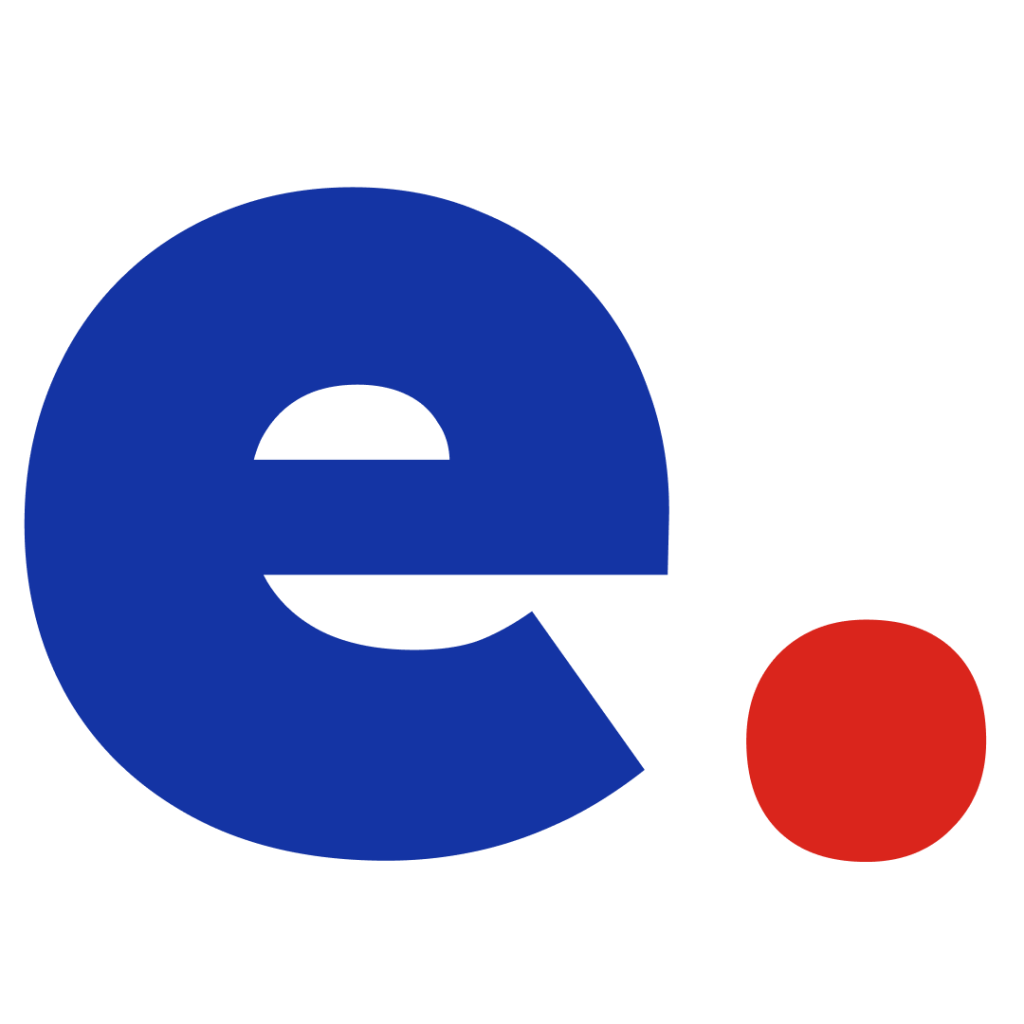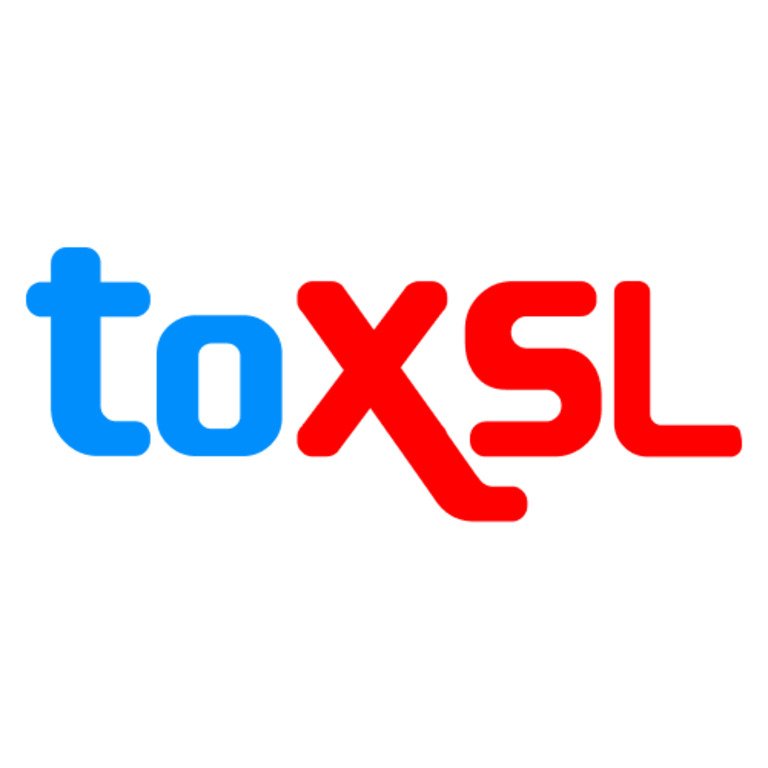Hire the Best PHP Developers
Check out our experienced PHP Developers who can meet your project needs.
3207 PHP Developers available
|
Clients rate Flexable PHP Developers 4/5 ⭐ (31 reviews)
Last updated: June 29, 2025

Sakthi K

Tom

Yoki Rahmada Berlian

Tushar Moradiya
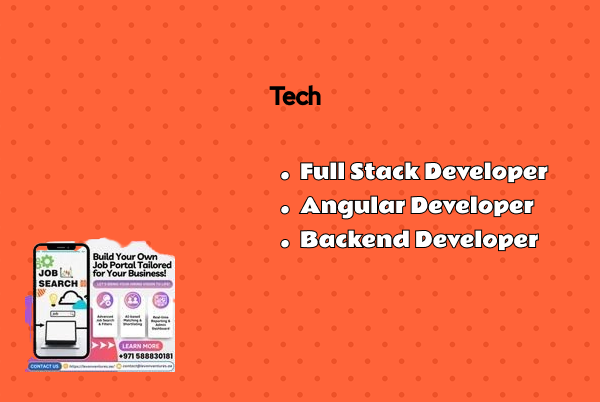
Naryanaswamy
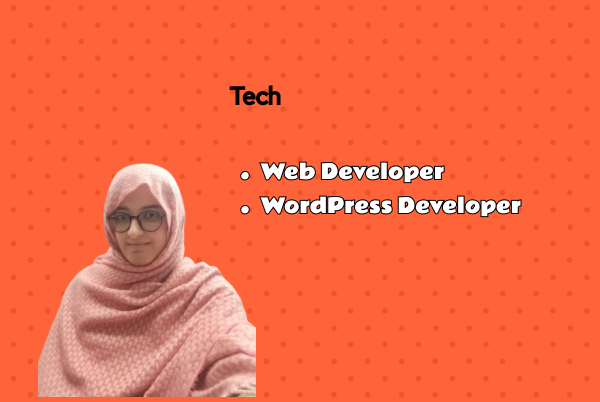
Ramsha Tariq

Nihal Mishra

Eduard Hoppman

Suraj Kushwah

Allen Samuel
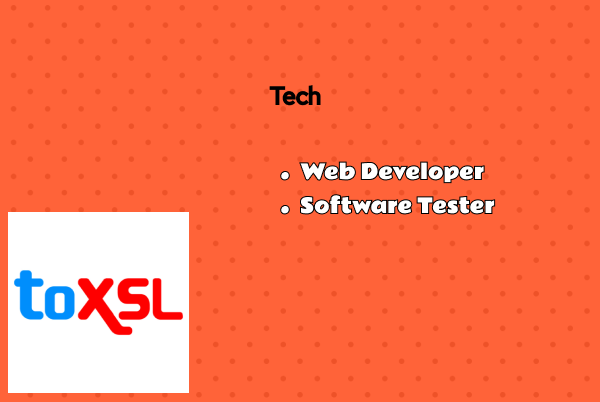
ToXSL Technologies
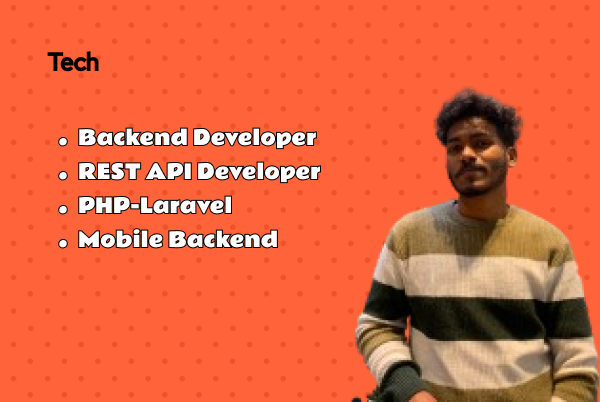
Abinash R
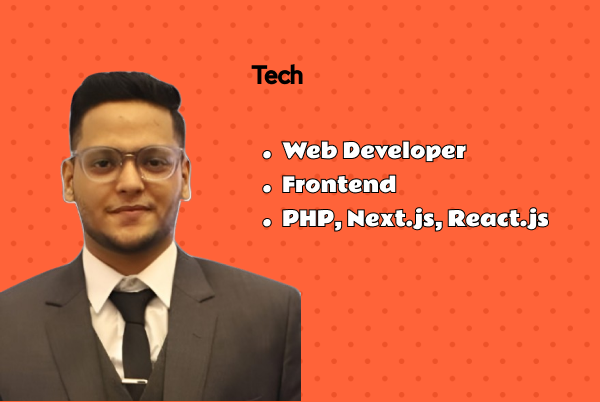
Muhammad Usman Hussain

Raghavendra Rao

Prakash Shetty

Arjun Pawar

Tyron Clay

Afreen Bashir

Santino Rios

Esmeralda Morales

Bodie Michaud

Omir Parks

Uma Maheswari Krishnan

Juan Martinez

Hannah Goldberg

William Green

Zachary Adams

Mukund Vaghela

Ariella Friedman

Joseph Harris

Krish Desai

Pradyumna Rao

Kishore Doke

Dev Bhatt

Lokesh Rajurkar

Zyaire Chen

Sofia Calderon

Animesh Kalita

Imran Stokes

Zoya Akhtar

Julian Vaughn

Lucien Barrera

Amelia Clark

Sawyer Blais

Fatima Zamora

Karina Velasquez

Kiran Jyoti Bhuyan

Rameshwar Mallick

Anil Kumar

Abhijit Debnath

Daniel Allen

Abok Lotha

Anai Orozco

Dayanara Gonzales

Ashwini Karthik

Maya Alston

Amarjeet Dhakad

Mila Carlson

Narayanappa

Biswajit Saha

Brielle Clark

Nabil Chowdhury

Citlali Jauregui

Isela Mondragon

Kyro Connors

Rocio Ayala

Nixon Barreto

Andre Whatley

Javion Robbins

Niranjan Bhattacharjee

Abung Naorem

Abing Dolo

Aching Wangsu

Bhargav Krishna

Amuba Thoudam

Tywan Salter

Madden Orozco

Krish Deshmukh

Reina Molina

Apum Perme

Baljeet Ahlawat

Avni Mehta

Layla Khan

Javier Martinez

Clarissa Garza

Isabella Lee

Keshab Chetia

Orla Flynn

Isaiah Franklin

Esmeralda Lee

Ximena Salgado

Renji Ku

Pushpendra Rajpurohit

Abhay Kumar Mahto

Bhaskar Naidu

Dinesh Goud

Akshay Hegde

Aniyah Bennett

Jovon Penn

Zara Fisher

Ilwaad Ahmed

Mireya Medina

Andre West

Jenny Tran

Ruben Molina

Mozhui Sema

Christine Choi

Zuri Freeman

Krishnamurthy Dixit

Laxman Gurjar

Ciara Dunne

Leonel Benitez

Saoirse Delaney

Eldho Joseph

Iliana Benavides

Akash Teja

Angousana Kangjam

Blakely Bishop

Sullivan Hayes

Sundas Ahmad

Emely Lozoya

Shaik Abdul Basheer

Eithan Ramires

Dior Castaneda

Julieta Mendes

Camila Tovar

Kwame Prince

Rocio Garza

Pankaj Purohit

Madison Ellis

Adrian Delgado

Yesica De La Rosa

Mimi Tallang

Mohen Angom

Celeste Pineda

Ayani Shirai

Anand Kishore Jha

Camila Mendes

Jahlil Conner

Karina Davila

Matthew White

Isabella Fields

Naomi Walker

Anjali Menon

Anjali Gupta

Julissa Camarillo

Kamal Kishore Kisku

David Rosen

Awa Jallow

Leif Brightwind

Kishan Oraon

Rajarajeshwara Gowda

Marcos Renteria

Amol Phatak

Bryson Rios

Tanaya Good Elk

Camila Harris

Aubree Hayes

Alondra Espinoza

Arif Patel

Tyree Cross

Ava Brooks

Cassidy Blake

Uma Haridas

Maya Reed

Kareem Watts

Noah Hoang

Jade Wheeler

Ruhul Amin

Evan Yoon

Treyvon McGee

Marlene Alfaro

Sukhchain Singh

Reese Knox

Aang Dorjee Bhutia

Adiel Nongkynrih

Ximena Cortes

Arya Caldera

Iliana Gomes

Adley Vaughn

Yahir Meraz

Tor Ice Whisper

Bryce Wells

Sofia Morgan

Anahi Carvajal

Zariah Parker

Kuldeep Kujur

Javon Romero

Londyn Brooks

Mahesh Singh Sardar

Maxwell Willis

Sreerag

Abhimanyu Kosariya

Rihmingthanga Pachuau

Priya Verma

Amarendra Behera

Nikhil Singh

Santiago Cruz

Rania Elmi

Cael Driftpine

Carlos Rivas

Zulema Luna

Jairus Aolani

Gabriela Escobedo

Ravina Iyer

Nayeli Lopez

Lokesh Shinde

Rashawn Chaney

Owen Berger

Damien Grant

Mahesh Ingle

Aditya Dimri

Jonah Weiss

Linh Nguyen

Abong Tayeng

Boden Salas

Akash Lohan

Cataleya Fields

Kwame Horne

Ashutosh Rathi

Tyler Song

Julieta Rocha

Vivienne Lewis

Heidi Paulson

Manvinder Luthra

Maika Bravo

Belen Santiago

Leah Rubin

Ibrahim Ebrahim

Malia Zavala

Arjun Iyer

Pankaj Mehta

Abhay Rajput

Ivanthar Kharsyntiew

Achiphu Rengma

Theodore Hudson

Yaretzi Martinez

Dinesh Karthikeyan

Maria Marshall

Reina Santiago

Gavin Turner

Caiden Martel

Iman Yusuf

Tyron Reaves

Jayadev Mishra

Ali Mohammed

Ariadne Malone

Ivy Lawrence

Byung Yoon

Kailash Parida

Young Kwon

Sanjay Mehta

Kiran Chauhan

Ajay Dahiya

Sofia Santos

Elihu Kalima

Ezekiel Treviño

Andre Lovelace

Alessia Sloan

Nadia Estrada

Huda Rahman

Lana Mahmoud

Tessa Ford

Kwame Reynolds

Pradeep Ahlawat

Mahaveer Singh

Dean Flanery

Itzel Rivera

Rayan Mehta

Tatum Kojima

Joba Pansa

Saylor Wallace

Camila Barrios

Mukul Sharma

Aiden Gallant

Elora Nunez

Amar Kumar Oraon

Anand Sinha

Taryn Allen

Fatima Arce

Aitana Garcia

Charles Gray

Nooreen Idris

Dahlia Granillo

Lokesh Shrivastava

Moko Phom

Meher Azhar

Mukesh Keer

Malik Walker

Nungshiba Sangtam

Shiva Kumar Naik

Chithra Lakshmanan

Isha Kapoor

Jackson Li

Ajay Desai

Dre White

Alondra Ledezma

Amit Chaturvedi

Ganesan Arivazhagan

Colt Godfrey

Fernanda Olivares

Amaya Noorani

Mariela Quinones

Dayana Corral

Pablo Ayala

Liana Reyes

Dayana Alvarado

Zariah Casas

Juliana Varela

Dante Silva

Ayaan Qureshi

Rishabh Gujar

Damon Short Bull

Lukhendro Chingtham

Grayson Palmer

Sandeep Fageria

Nyari Jamoh

Satender Kadian

Abhinandan Thakur

Amrit Tamang

Anmol Rai

Akashdeep Rana

Ashok Pradhan

Winnie Boone

Jaylen Nixon

Anirban Neog

Vivaan Sharma

Shaan Iyer

Levi Hoshino

Amina Cruz

Rajasekhar Reddy

Isabella Vargas

Lakshman Raj Tiwari

Rajendra Prasad

Truett Snow Claw

Siena Valdez

Miranda Chavez

Adrian Garza

Abel Fernandes

Selene Sosa

Dulce Ramos

Edward Tsai

Mateo Alvarado

Fatima Cabrales

Anirban Bhattacharjee

Lowen Trailwind

Arif Shaikh

Ryan Wong

Luca Franklin

Mayur Saxena

Tyree Clegg

Mohd. Saif

Xaviera Fernandes

Brooklyn Young

Sara Epstein

Levi Wright

Aditya Negi

Amar Nath Tanwar

Amitava Banerjee

Blair Bishop

Arvind Rathore

Julieta DeLeon

Ariana Zamora

Leila Ayala

Luciana Ramirez

Phurba Tamang

Naresh Chandel

Ranjan Karmakar

Sloane Barrett

Rahim Fountain

Caleb Brooks

Carter Roberge

Tanner Jenkins

Mayur Gole

Narayan Chakraborty

Aliyan Qureshi

Abhay Singh Rathore

Anil Kumar Reddy

Amar Singh Sisodia

Rubi Dominguez

Ashem Naobi

Bharat Dalal

Tanvi Malhotra

Juniper Banks

Kareem Davis

Prakash Singh Shekhawat

Amelia Walker

Lalit Changkakoti

Ada Ford

Abhishek Gowda

Noemi Valdez

Eliseo Chavez

Hemanth Kumar

Brianna Aguayo

Luis Mitchell

Fatima Lujan

Mangal Sen Kosle

Mukhong Konyak

Naresh Manikpuri

Nuklu Konyak

Nilesh Kosariya

Abhijeet Singh

Chandrika Pillai

Oying Ao

Arvinder Singh

Jabari Kinney

Narendra Paliwal

Itzel Galan

Belen Jimenez

Renata Pereira

Mebo Komut

Alexa Neal

Emiliano Torres

Isaac Bradford

Frida Huaman

Monko Tawang

Amarjit Tamang

Bineesh

Bhupen Gurung

Anand Prakash Verma

Sutton Barrett

Jose Smith

Lylah Greene

Arun Verma

Abhishek Thakre

Akash Patel

Amit Shah

Selena Meza

Ananta Rath

Darius Martinez

Robert Kipgen

Nikolai Granger

Sudhir Gupta

Debapriya Sanyal

Kwame Stevenson

Amarjeet Bisht

Arindam Borah

Barishon Myrthong

Easton Delgado

Amal Hared

P.C. Lalvenhima

Genesis Castillo

Achyutananda Mishra

Ajay Debbarma

Amalendu Chakraborty

Amit Netam

Bailey Ward

Walker Chandler

Paresh Rawal

Vijay Kumar

Elijah Katz

Zuleika Martinez

Ariana Fox

Naveen Bajpai

Amarjeet Saini

Anil Uniyal

Apam Komut

Dayana Alcantar

Aksel Aguirre

Leslie Hernandez

Dania Lozano

Marcel Thomas

Ivette Cruz

Kyan Rollins

Eiko Beltran

Pemba Tenzing Lepcha

Karunamoy Barman

Aditya Reddy

Anil Kumar Goud

Basavaraj Naik

Mireya Borrego

Akash Verma

Cortez Dailey

Ana Maria Cazares

Alina Wright

Noemi Llamas

Woo Han

Catalina Mercado

Manoj Purohit

Laxmikant Bamande

Anika Boyd

Ali Hussain

Prakash Chakma

Aslam Parvez

Nadia Miles

Anong Riba

Angousana Khundrakpam

Tori Chan

Keahi Nariyoshi

Amira El-Amin

Wesley Boone

Amira Pena

Jemi Komut

Mahipal Choudhary

Naomi Collins

Aravind Nayak

Valeria Valle

Julissa Loera

Cassandra Reynaga

Jasleen Kaur

Madisyn Barber

Layla Whitman

Aurora Neal

Jahlil Maddox

Alicia Gonzales

Sarai Loera

Amina Torres

Ramzan Ismail

Ngemu Taloh

Colton Bishop

Viviana Salinas

Shyamveer Jakhar

Arjun Mehta

Clarissa Mejia

Zahra Said

Nalani Padilla

Selena Riley

Carlos Stewart

Luciana Melgar

Bianca Perkins

Ford Gervais

Anika Ross

Elena Garcia

Aniket Jadhav

Jaylen Stewart

Autumn Wells

Sivakumar Aravindan

Emily Hsu

Tyrone Foster

Itzel Godinez

Sahil Arora

Amara Lopez

Jahlil York

Laxman Satpute

Sukhdev Singh

Abhijit Chatterjee

Adarsh Rajpurohit

Aftab Hussain

Ajay Rana

Tatiana Rojas

Alina Morgan

Boston Gillespie

Karla Dominguez

Aniket Choudhury

Rhea Knox

Enzo Holy Rock

Bilmor Nongrum

Ashok Bhati

Isla Bishop

Brayan Leach

Anya Palmer

Jett Broken Nose

Kendrick Douglas

Alejandra Franco

Samira Duarte

Tyquan Willis

Keenan Santiago

Kapil Rajkonwar

Nasir Hunt

Mayank Thakur

Ibrahim Farid

Rashid Estes

Iliana Rojas

Harper Robinson

P.C. Ralte

Gemma Price

Mia Watson

Kwame Shields

Rohan Mehta

Ravi Nayak

Abir Chakraborty

Anand Sonwani

Anderson Ferguson

Amelia Hartman

Zara Ross

Daniella Arce

Angelica Torres

Amaya Barraza

Dulce Luna

Jibananda Kar

Dutton Singing Elk

Rahim Wooten

Ketan Naik

Lancelot Rebello

Ajay Teja

Emani Vargas

Lester Monteiro

Anirudh Rajpurohit

Mireya Montoya

Anand Karki

Lilo Makanani

Asher Mano‘o

Lola Chacon

Mariah Castillo

Nehemiah Little Feather

Jonathan Moore

Naresh Pathania

Gabriela Vasquez

Navdeep Luthra

Kuldip Sinha

Josbert Pariat

Pradeep Jangid

Bridget Sweeney

Kailea Arias

Anette Fuerte

Amaya Jenkins

Zoey James

Saniyah Melendez

Akhup Phom

Ahmir Harmon

Ayong Sangtam

Hal Glacier Rock

Christopher Gray

Luciana Urbina

Yesica Palacios

Maite Rios

Antonio Becerra

Carson Bossé

Ripon Reang

Zoya Rizvi

Ayaan Sheikh

Jalen White

Jabari Penn

Trevor Le

Xavier Brooks

Amy Zhang

Camila Luevano

Lalit Parmar

Ezekiel Ka‘eo

Anand Rao

Athouba Wahengbam

Amjad Hussain

Wilder Vaughn

Ariana Ruvalcaba

Chinglen Thokchom

Kinsley Pierce

Ledger Howling Wind

Destiny Mitchell

Dulce Valencia

Nylah Hall

Luis Martinez

Erica Fleming

Javier Luna

Zaniyah Esquivel

Maite Del Toro

Madang Basar

Mayank Upreti

Nasir Hurst

Mohan Pant

Ranbir Chautala

Abhay Kumar Jha

Bualchhuan Khiangte

Layla Barajas

Tyree Gamble

Camila Price

Selena Mendez

Eithan Buffalo Cloud

Giselle Silva

Anupama Reddy

Alexa Gray

Andrew Kaplan

Nyuwang Konyak

Bhuvaneshwari Rao

Pradeep Swamy

Robert Smith

Gabriela Jenkins

James Anderson

Jacob Fox

Lily Kelly

Elias Rubin

Ajay Kumbhar

Akshay Shirodkar

Lucia Rivas

Zane Martinez

Alok Pandey

Maya Herrera

Noor Darwish

Juniper Neal

Chloe Gray

Jaxon Dean

Brianna Rico

Caleb Benson

Kadar Sheikh

Vishnu Ramachandran

Kamlesh Chaudhary

Javion Simmons

Hendrix Solis

Davion Lester

Prabhat Rathod

Talia Cohen

Phanindra Reddy

Pradyumna Joshi

Abner Mawrie

Ajmer Singh Rana

Jonathan Ellis

Natalia Esquivel

Ashish Lepcha

Jude Hamilton

Christopher Grant

Malaya Sepulveda

Demonte Wallace

Javonte Justice

Mapuia Tochhawng

Bennett Vienneau

Vincent Olson

Anette Herrera

Shibu

Laxman Lohra

Rajan Chettri

Maggie Tate

Hani Mahamed

Jade Richards

Remsanga Khiangte

Murugan

Ajit Swain

Ekta Kumar

Mariama Koroma

Emiliano Torres

Francisco Esparza

Aniruddha Mohanty

Santhosh Natarajan

Siddharth Desai

Ashton Riggs

Emma Walker

Tyshawn Merritt

Jyoti Singh

Camila Molina

Ramya

Ishwar Pattanayak

Samuel Roth

Krishna Patil

Eleanor James

Kiara Martinez

Prashant Bhakta

Jogesh Senapati

Xaviera Joseph

Pritesh Dalal

Kalyan Rath

Karthik Mohanty

Abhimanyu Rathore

Aditya Rajawat

Alok Purohit

Kiaan Urbina

Anand Bhati

Amit Bhatt

Adalyn Carter

Colter Madera

Paisley Sanchez

Ibrahim Zaki

Samira Berrios

Tsunami Galvez

Langston Fire Rock

Rajiv Banerjee

Zaylee Hoshino

Jibon Bora

Naomi Levine

Caiden Kim

Tanner Nakano

Naresh Sharma

Hassan Conteh

Perla Morales

Anaya Santana

Navin Choudhary

Esther Stein

Rocio Garza

Naya Fuji

Omveer Bisht

Akhilesh Yadav

Darius Jenkins

Chakrapani Reddy

Chiranjeevi Goud

Leo Elk Cry

Gopinath Venkatesan

Jahlil Gay

Amira Scott

Talia Warner

Layla Ford

Lilliana Taylor

Rosalie Douglas

Amira Thomas

Thalia Enriquez

Anirudh Gusain

Achouba Keisham

Anirudh Khanna

Akshay Bisht

Araceli Ramirez

Aravind Sreekumar

Omari Carter

Adi Ngemu

Carlos Pizarro

Lily Douglas

Keone Komatsu

Balwant Singh

Luna Makanalani

Yesenia Garza

Babulal Thokchom

Nico Espinoza

Yaretzi Amaro

Tyquan McMillan

Nehemiah Barnes

Kester Kynsai

Donte Holmes

Matteo Hayashi

Alisson Tello

Matias Garza

Holden Pratt

Juliana Lazo

Luana Cortez

Maxen Wu

Kwame Bonner

Wren Palmer

Abhinav Jha

Anvesh Kumar

Akhilesh Tudu

Jahlil Justice

Jayla Benson

Wynter Brooks

Demonte Pryor

Anil Minz

Aashna Tandon

Samuel Jenkins

Anika Mercado

Jamir Bennett

Julissa Tobar

Valeria Cordero

Talon Thériault

Sanjay Rao

Gavin Herrera

Nora Perry

Andre Allen

Landen Bechard

Arunachalam Rajan

Aditya Patel

Ajay Naik

Thalia Carbajal

Clay Bearshield

Amar Mehta

Imran Ali

Jamir Salgado

Easton Wallace

Jovon Royal

Arjun Yadav

Clarissa Becerra

Aliyah Hart

Layla Santiago

Leticia Montano

Nandan Chhetri

Miriam Weiss

Riyas Kalathil

Tiana Brooks

Amaya Gonzalez

Roshan Perumal

Elijah Cross

Melanie Huerta

Yesica Tapia

Jaylene Haas

Aayush Bhujel

Omey Bomjen

Bipul Lodh

Azul Faria

Rohan Kapoor

Biakmuan Hauhnar

Mariela Ramos

Ananda Phukan

Mark Warren

Frida Cardenas

Omari Fernandez

Zaire Mitchell

Thatcher Lopes

Frida Contreras

Emery Abbott

Javier Torres

Ramachandra Rao

Viviana Escoto

Sutton Blake

Priya Powell

Kareem Bledsoe

Jude Wells

Zawthanga Khiangte

Abhijit Mahapatra

Suprasad Kotian

Ajinkya Gawande

Amitabh Saha

Jasper Webb

Luis Richardson

Samirah Aden

David Tran

Tyler Hampton

Thenmozhi Bharathi

Rohan Kapoor

Rani Desai

Kylan Salas

Rahim Everett

Sanjay Bansal

Justice Neal

Itzel Chavez

Rashid Carver

Pratap Reddy

Abhinav Thakur

Madhav Pagare

Cassius Lone Tree

Alia Nasser

Amar Chand

Gabriela Morales

Sabrina Castillo

Roselyn Ortega

Brisa Hernandez

Pasang Dawa Bhutia

Lylah Ford

Jaylen Flores

Ash Cold River

Nasteexo Farah

Muana Lalnunpuia

Krishnendu Dutta

Arjun Shah

Indie Whitaker

Landry Tran

Dayana Portillo

Clarissa Monroe

Bimal Nath

Maya Rose

Malachi Shah

Arjun Manikpuri

Charlotte Blake

Carlos Hayes

Hugo Marshall

Yesica Godoy

Giselle Lucio

Cody Bryant

Manoj Paranjape

Nandan Mog

Destinee Warren

Shawn Wells

Milind Waghmare

Alondra Navarro

Dahlia Encinas

Amarendra Chowdary

Amina Hussain

Mukesh Thakre

Anirudh Mann

Taniya Ross

Akhu Riba

Arvind Meena

David Ross

Kavya Nair

Aarav Ghosh

Viviana Covarrubias

Kase Marsh

Ciara Horan

Iliana Mejia

Pankaj Tanwar

Dario Araki

Niranjan Sarkar

Yesenia Cazares

Lohit Phukan

Harper Wallace

Kordor Diengdoh

Abemo Lotha

Damien Babineau

Cayson Zhang

Ava Collins

Rahmo Abdi

Rosalie Ocampo

Amitesh Kumar Verma

Gajendra Prasad

Anand Prasad

Bendang Imchen

Legacy Rivera

Anshuman Thakur

Axel Ice Path

Tyquan London

Asma Jama

Ellie Watson

Selah Bustamante

Aaron Brooks

Keshav Awasthi

Yamilex Benitez

Makayla Yazzie

Nyla Newton

Samiran Debnath

Heaven Clark

Jalen McBride

Legacy White

Danna Villalobos

Akham Noren

Amari Lewis

Jessenia Coronel

Landon Dorsey

Miles Montoya

Mariana Lerma

Aviana Ortiz

Weston Galarza

Brenda Guevara

Tinsley Chandler

Alyssa Soto

Decker Quiet Storm

Giselle Castillo

Catalina Lopez

Ompal Choudhary

Isadora Martins

Sabrina Holland

Mukul Gusain

Aizik Tlau

Ang Tenzing Bhutia

Anil Kumar Munda

Lyla Malone

Lucero Figueroa

Jayla Green

Karolina Fuentes

Natalia Oliveira

Yuliana Delgado

Maite Mendez

Abhishek Kumar

Liam Mitchell

Julia Costa

Luis Enrique Alvarado

Catalina Alfaro

Thorne Snowcliff

Charitha Goud

Kartik Hembram

Isaac Feldman

Gideon Stein

Saylor Harmon

Callie Monroe

Rokonuo Rengma

Aditya Tiwari

Ajay Yadav

Alondra Uriarte

Javon Wilkes

Anil Solanki

Amitabha Nayak

Bristol Wells

Noor Sanchez

Celeste Arroyo

Anahi Pacheco

Samrath Arora

Trang Pham

Navdeep Chowdary

Wilfred Augustine

Sucha Singh

Yaseen Mohammed

Lilah Beasley

Piyush Desai

Salam Rajesh

Leah Weiss

Pranesh Teja

Debesh Pal

Rowan Ford

Kwame Sanford

Animesh Gogoi

Fallon Harmon

Arystar Kharjahrin

Anupam Choudhury

Babu Tamang

Olivia Blake

Selena Jackson

Krishnendu Ghosh

Puran Subba

Gray White Sea

Barwaaqo Jama

Naomi Wells

Oscar Solano

Shyam

R.L. Lalruatpuia

Ramesh Tamang

Isela Cazares

Aditya Mishra

Aditya Patnaik

Ashwini

Anil Chandrakar

Rahul Kumar

Padmavathy

Viviana Solano

Anand Saxena

Pavitra Kumar

Julissa Valdez

Noemi Pineda

Jatin Yadav

Rahmatou Diallo

Hina Kamahao

Mukesh Jatav

Jace Downey

Pedro Herrera

Zamir Dobbins

Celina Mendoza

Laxman Dhaygude

Raegan Ray

Kayla Dean

Kendrick Bennett

Ximena Nunez

Amaya Kaleialoha

Makenna Howell

Ravi Sodha

Albin Kharbani

Sofia Jaime

Harlan Irvin

Ajang Wangsu

Banlum Marngar

Rahman Giles

Talia Holmes

Selene Melchor

Benedict Thabah

Arjun Tanwar

Jayceon Miller

Elaine Beltran

Mohamed Noor

Ronin Zapata

Sabrina Cooper

Itzel Vega

Ranadeb Roy

Clarissa Godoy

Edison White

Genesis Felix

Janessa Valdez

Abhishek Kashyap

Balaji Ramaswamy

Ajay Sahu

Chitra Krishnan

Yuna Evans

Elijah Bailey

Alato Sema

Luz Rivera

Nasteexo Mahdi

Dash Thunder Tusk

Zachary Arnold

Elijah Beck

Amira Munoz

Devin Carter

Celeste Jordan

Sahar Jamal

Madhur Sharma

Julieta Arevalo

Mahesh Korku

Jayant Senapati

Amir Robinson

Thatcher Hahn

Mina Ellison

Prabhakar Bhattacharjee

Ajayan Nair

Kamari Ellis

Amal Viswanath

Mangal Baghel

Abungcha Ningthoujam

Anil Tomar

Balbir Singh

Grace Harmon

Eden Beck

Langston Bell

Frida Walton

Yesenia Luna

Zoey Naupaka

Selene Paredes

Samar Farid

Yesica Herrera

Lokendra Bhati

Tatiana Cervantes

Langston DeJesus

Jangi Tallang

Andre Faulkner

Nasim Abbott

Manoj Rajawat

Mireya Sanchez

Rajinder Hooda

Aichhinga Tochhawng

Biakliana Khiangte

Araceli Paniagua

Arvind Choudary

Alisha Pandey

Delaney Parker

Anil Prasad Yadav

Maliyah Steele

Benjamin Ouellette

Zaid Spotted Thunder

Dayananda Prabhu

Ruqia Aden

Carmen Estrella

Dylan Nguyen

Minji Powell

Manish Devangan

Hazel Harrington

Lina Chen

Mithun Kori

Penelope Cruz

Aditya Wagh

Baldev Singh

Fathima Banu

Brayden Webb

Tyshawn Sears

Perla Arenas

Curtis Brown

Mahesh Chawla

Naomi Goldberg

Maninderpreet Singh

Marina Melton

Manjitpal Singh

Naresh Kothari

Houston Trujillo

Isabel Fernandes

Piyush Khati

Abhirup Bhuyan

Pema Dorjee

Samara Huerta

Anand Singh Rathore

Chandan Mallick

Kingston Adams

Chhunthangliana Tlau

Dario White Lance

Yulissa Matos

Fatima Zepeda

Anika Adams

Ruqiya Hersi

Tobias Spencer

Mateo Lopez

Kishore Kujur

Axel Cunningham

Lennon Sawyer

Anaya Rubio

Kuldeep Ram

Alaya Craig

Aaron D’Souza

Abhijit Patil

Colson Bellefeuille

Eric Chen

Axton Paradis

Elijah Cheng

Amulya Panda

Austin Ford

Nash Roberge

Mia Adams

Yesica Jaimes

Alani Chavez

Mehboob Alam

Waseem Akram

Malia Moemoeā

Murari Lal Gupta

Landry Kalāheo

Denver Shepard

Nikesh Suthar

Mushtaq Ahmed

Banteidor Lyngdoh

Jazmin Maldonado

Anil Meena

Anil Chauhan

Anirudh Mehta

Daniela Mendez

Karina Covarrubias

Shankarappa Hegde

Palden Bhutia

Ethan Rhodes

Zayd Bass

Nina Douglas

Isabel Ward

Mohamed Qadir

Elsie Glenn

Kai Lone Wolf

Tyshawn Peoples

Juliana Montemayor

Irene Tran

Vidhya Lakshmi

Purna Bahadur Rai

Achiphu Angami

Kavitha Reddy

Akhilesh Kosariya

Irene Ramsey

Julissa Cuellar

Samuel Landry

Sarai Castañeda

Karina Barraza

Crew Bear Rain

Elian Jaramillo

Jatindra Senapati

Alondra Rios

Mohan Reang

Mariana Ramirez

Itzel Romero

Noah Chandler

Serenity Calderon

Marisol Tinoco

Bridger Little Moon

Kamalakanta Rath

Tuba Jaleel

Orion Firesky

Kabir Verma

Nathalie Esquivel

Arun Kumar Phurailatpam

Alden Rowe

Joseph Taylor

Liana Thompson

Babuchand Heisnam

Malia Santiago

Grace Thomas

Joachim Suting

Solina Uyeda

Ephraim Fast Eagle

Narayan Dutta

Nitin Rajwar

Karmen Suchiang

Nilanjan Chakraborty

Tamara Ross

Pankaj Bharadwaj

Kelson Rapsang

Pardeep Chauhan

Keston Mawthoh

Partha Pratim Roy

Ajay Prasad Yadav

Liliana Leyva

Amarendra Bhagat

Anirudh Desai

Anil Murmu

Dante Rhodes

Andre Whitman

Zuri Alvarez

Tristan Abbott

Rudra Laskar

Isla O’Donnell

Wyatt Anderson

Maeve Brennan

Fiona McAllister

Colton Red Elk

Mukesh Sonkar

Biju Menon

Nyikhuo Chakhesang

Lokesh Purohit

Deepa Rajan

Alok Saxena

Cayson Razo

Amitabh Solanki

Ailani Delgado

West Black Rain

Daler Singh

Kwame Roach

Maliyah Brown

Arun Kumar Yadav

Sathyanarayana Sharma

Anderson Brooks

Karina Moreno

Natalia Rocha

Jillian Drake

Sharath Kumar Goud

Mateo Rivera

Sudheer Chowdary

Jett Rosario

Rajveer Ahlawat

Fatima Syed

Pawan Saini

Hailey Cooper

Ranjeet Dahiya

Ajeesh

Nangram Dui

Aditya Raj Singh

Yasmin Omar

Jalen Sano

Akhilesh Prasad

Valery Bautista

Biju

Basant Chettri

Fernanda Rocha

Isabela Santos

Eiden Goya

Dariel Iron Horn

Aolani Castillo

Chhuanthanga Ralte

Ayleen Solis

Tiana Johnson

Sienna Fox

Kwame Foster

Yaretzi Ventura

Manuela Santos

Maddox Gauvin

Lowen Glacierveil

Jogeshwar Mahto

Prakash Patil

Lal Bahadur Mishra

Frida Quintana

Ashish Yadav

William Thompson

Fathima Begum

Aaron Klein

Ganga Bhavani

Jocelyn Cedillo

Anil Pawar

Aman Srivastava

Eli Stone

Yuna Reed

Mai Nguyen

Flor Gonzalez

Jordan Thai

Beckett Boyd

Wesley Moran

Dayanara Delarosa

Xander Wallace

Aria Ortega

Javion Callahan

Tessa Harmon

Parameshwar Chowdary

Abhishek Dogra

Amar Subba

Albinus Shylla

Anmol Pradhan

Layla Palacios

Tripp Urbina

Rylan Castillo

Anbor Warjri

Dibyendu Karmakar

Reign Rico

Omari Wolf Necklace

Colt Ramos

Presley Lane

Turner Eagle Boy

Axton Costa

Ava Rhodes

Maisie Craig

Andre Jenkins

Sophia Carter

Luna Freeman

Maheshwar Prasad Yadav

Tobias Shah

Manish Kumar Verma

Muankima Ralte

Nasim Crews

Layla Bowen

Kaia Holmes

Divya Singh

Colin Levasseur

Graham Holloway

Arjun Reddy

Ashok Nath

Anil Meena

Huda Warsame

Jasper Ali

Vetrivel Raja

Terrence Reed

Tyrell Johnson

Andre Boykin

Narendra Pal Singh

Rosa Villarreal

Delaney Freeman

Saanvi Kapoor

Ava Morgan

Ajit Chauhan

Ajit Malik

Bahunlang Khongwir

Jalen Adams

Basan Mukhim

Anil Kaswan

Anirudh Mehra

Evan Cho

Leif Canales

Taj Williams

Alondra Morales

Hannah Goldman

Rosalie Scott

Rahim McAllister

Parash Chhetri

Dev Bhatt

Kailash Boro

Kamal Chetia

Iorwether Rapsang

Ritwik Sen

Krish Mehta

Aben Jamir

Nimo Aden

Noemi Kim

Layla Menendez

Anand Patel

Damodar Rao

Diego Alcaraz

Leyla Padilla

Nicole Webb

Cristian Ruiz

Lesly Zuniga

Wesley Santiago

Oscar Matthews

Krishnakant Kosariya

Nishith Nath

Kunal Netam

Parimal Das

Enrique Silva

Rosalinda Dominguez

Anahi Cedillo

Zayd Solis

Sarina Grant

Rania Bukhari

Madan Parganiha

Citlali Cervantes

Aheibam Birjit

Fatima Macias

Quincy Rhodes

Zion Street

Joaquin Torres

Raya Jordan

Tyrik Williams

Nicolas Serrano

Alejandro Mena

Dante Kupu

Miyah Espinoza

Julien Lefevre

Ada Greene

Nina Vaughn

Navin Dhasmana

Brynn Douglas

Niranjan Gusain

Franklin Hennessy

Kabir Shah

Iniko Bravo

Lansius Kyndiah

Kachen Wangsu

Balakrishna Poojary

Lamont Tripp

Phoenix Price

Elias Windcrest

Adrian Nguyen

Anjali Kumar

Tania Navarro

Samara Cruz

Samson Fortin

Sarath Choudary

Nayeli Alvarez

Isaiah Thomas

Mason Wu

Abhishek Tiwari

Abhinav Bhatt

Abhinav Reddy

Dalia Chacon

Camden York

Vivian Arteaga

Anand Reddy

Brittany Morris

Tyrell Ibarra

Ramesh Unnithan

Sarai Greene

Maximiliano Rivera

Eliana Katz

Indie Hood

Zander Li

Birendra Kundu

Biswajit Sanyal

Logan Dean

Buangthanga Zomuana

Lahela Morin

Callen Spotted Cloud

Anupam Koundal

C. Lalthazuala

Ahmir McKnight

Catalina Galvan

Alina Rodriguez

Lilliana James

Knox Pellerin

Keshav Murmu

Shreedhara Poojary

Tavon Daniels

Madan Prasad Yadav

Tatiana Almazan

Marco Morales

Sudhindra Alva

Rohit Teja

Abinash Chakraborty

Akash Deshpande

Catalina Lucero

Isaac Dalton

Aarohi Reddy

Agnelo Mascarenhas

Charlotte Gonzalez

Elizabeth Santos

Owen Curtis

Maria Alvarez

Andrew Park

Jude Ellis

Selena Bautista

Lina Iyer

Kianna Torres

Naomi Weiss

Jackson Thomas

Vivaan Patel

Haunani Yagi

Nayanth Shah

Talia Rosenberg

Gabriel Anderson

Ravi Sinha

Premchand Chowdary

Raghavendra Rao

Ajay Choudhary

Agnimitra Sen

Itzel Serrano

Gia Boone

Bashanbor Laitflang

Ahmir Jefferson

Amal Medhi

Batkupar Diengdoh

Clarissa Huynh

Anirban Basu

Nyla Hassan

Bisweshwar Shylla

Jasiel Zhang

Jahlil Nash

Anahi Vega

Catalina Pacheco

Hassan Graves

Isela Lucero

Samiya Aweis

Manoj Kotwal

Luciana Mendez

Sarai Cordova

Declan Plourde

Kushal Kalita

R.L. Lalremruata

Marcus Cooper

Tyler Perreault

Navjot Kher

Rathin Pal

Lokeshwar Das

Ajit Rathore

Anupam Tripura

Andre Robinson

Akhupa Konyak

Lena Knight

Ahmad Dozier

Salvador Arzate

Malik Carter

Esme Ortiz

Cynthia Sloan

Alondra Vega

Tatiana Brown

Wells Medina

Rosa Herrera

Rafael Johnson

Claudia Serrano

Zoe Foster

Mahesh Kadam

Aditya Reddy

Nelly Betancourt

Garrett Dawson

Janay Fields

Dylan Grant

Ajay Rautela

Arun Prasad Naidu

Sneha Reddy

Hale Akamu

Anok Lego

Ahmad Cousins

Isis Gutierrez

Asong Pansa

Nia Stewart

Aliyana Ka‘opua

Rosalie Quintana

Tru Bennett

Yamilex Almazan

Gabriela Mejia

Taj Murphy

Koji Vega

Aine Delaney

Dania Bravo

Belen Solis

Nayan Ghosh

Charlotte Harris

Noel Chavez

Kushal Bordoloi

Javari Holmes

Ajay Reddy

Emery Price

Rosalyn Scott

Akshay Soren

Ayei Zeliang

Anandappa Nayaka

Anand Pratap Singh

Anjaneya Setty

Caden Banks

Aravind Iyengar

Minji Foster

Lamont Hodge

Damien Hammond

Declan Kerr

Marina Valencia

Manohar Yadu

Lisa Li

Julissa Tinoco

Tyrik Frazier

Sofia Delgado

Abhinav Awasthi

Nirmal Rathore

Amarpreet Singh

Akshaybhai Patel

Camila Jaimes

Malie Yamada

Rowan Ibarra

Millie Stanley

Muskan Rizvi

Maurice Amaya

Ankit Naidu

Anil Bhadoria

Chongtham Boy

Isaiah Kamaka

Tatiana Rojas

Annika Wang

Lokesh Nautiyal

Shanmukh Reddy

Easton Calderon

Prashant Godara

Kara Wilkins

Clarisse Correia

Manoj Negi

Sabrina Silva

Rahul Tokas

Leilani Coronado

Nathalia Lopez

Flynn Rea

Ajay Kumar Soren

Tyquan Garland

Chawngsanga Tochhawng

Chawngthansanga Hauhnar

Chandrasekharan

Anupam Choudhary

Deepu

Larissa Barbosa

Frida Naranjo

Roselyn Murillo

Aizen Fukumura

Rahim Bynum

Kundan Kumar Thakur

Citlali Segura

Pelesayi Angami

Deepthi Naik

Prasanna Bhat

Phevizo Chakhesang

Omari Reaves

Hunter Cormier

Mahaveer Prasad Verma

Abhinav Mishra

Abhishek Mehta

Kunal Marandi

Rajendra Setty

Akash Verma

Alok Barik

Tyrone Davis

Alaya Marsh

Noemi Trujillo

Isaiah Walker

Tatiana Rivera

Ryder Zhao

Samarpreet Singh

Iris Walters

Nixon Palomares

Nalin Rawal

Alice Tate

Satinder Singh

Skyler Vaughn

Nirav Purohit

Graham Elliott

Alina Duarte

Chinmoy Lahiri

Sanatomba Meetei

Ajoy Sarma

Crosby Thunder Shield

Akash Sood

Anup Chettri

Aniruddha Neog

Rahim Middleton

Chase Navarro

Xavier Steele

Emma Vaughn

Sofia Vasquez

Nolan Ford

Kendrick Nguyen

Gavin Alvarez

Nova Fields

Cataleya Zamora

Ivy Rice

Rabindra Gurung

Gianna Alanis

Rina Stewart

Mukesh Paswan

Malik Flores

Yesica Zavala

Abhirup Saha

Narendra Kumar Jha

Manoj Tudu

Abhay Chouhan

Sudheesh

Xiomara Gaitan

Ajit Lodhi

Aarohi Sharma

Akhtar Ali

Anup Reang

Diego Castillo

Vikram Joshi

Ximena Tobar

Maite Arzate

Manish Verma

Aaron Silver

Allison Barnes

Jitendra Pradhan

Fatima Llamas

Yuvan Sekar

Kritika Mehta

André Fontenot

Rajendra Baxi

Mahadev Pisal

Jamila Shaikh

Abhishek Dahiya

Akhilesh Pundir

Alia Alfaro

Jabari Nelson

Yehuda Dodd

Belen Castillo

Karina Zepeda

Jitendra Sarma

Talia Weiss

Jyotirmoy Neog

Yesenia Sepulveda

Noemi Lopez

Ahmir Baylor

Tavita Isobe

Suleiman Fofana

Arun Kumar

Emmett Wallace

Luis Angel Cisneros

Amar Nath Sinha

Anand Jain

Dulce Sanchez

Bryce Gonzales

Farzana Banu

Miguel Foster

Amina Farid

Camila Alcaraz

Dawson Caron

Coraline Pierce

Yamilex Zepeda

Edison Davila

Lakhan Chandrakar

Aboobacker Siddique

Tyson Ford

Imani Lewis

Luciana Macias

Liora Goodman

Omar Malik

Abhimanyu Malik

Kishore Panda

Amandeep Singh

Abang Tayeng

Akham Shitaljit

Monica Gill

Mira Douglas

Arjun Mahra

Apang Dolo

Royce Scott

Arun Bomjen

Maurice Knight

Tessa Carroll

Phoebe Dean

Laxmikant Meena

Zaire Harada

Itzeli Moreno

Kahea Alvarez

Kmenlang Kharshiing

Manish Purohit

Brynlee Hart

Persephone Correia

Finn Douglas

Pankaj Sundriyal

Ajith Rai

Kianna Solano

Donovan McCray

Chawnghminga Hnamte

Ashok Naidu

Nicholas Ross

Chidananda Alva

Aaron Reyes

Christopher Scott

Aisha Patel

Madanlal Tandon

Mikhuo Zeliang

Arlet Ramirez

Yesica Najera

Shankar Goud

Emma Morgan

Nasir Hobbs

Mayank Porwal

Mukhong Konyak

Salma Rivera

Daxton Caron

Adarsh Pandey

Dhanushkodi Ramasamy

Elango Thevar

Ajith Naidu

Giselle Luna

Akash Chowdary

Akshay Joshi

Tatiana Aguilar

Tina Wang

Balwinder Singh

Brock Yellow Robe

Amey Modak

Anand Paranjape

Diego Fuentes

Prathap Govindan

Jamir Wyatt

Alma Varela

Grey Riverstone

Lena Wu

Longjam Suraj

Luna Chandler

Camila Mendes

Mukesh Puri

Nirmal Gusain

Jamari Two Lance

Sanjay Balhara

Stella Boone

Emmett Ford

Zola Benson

Oken Taloh

Nitin Walia

Paxton Holmes

Ruth Feldman

Selah Robbins

Manglem Tondonba

Barliana Renthlei

Daniela Luna

Mariana Alvarez

Brennan Eagle Hunter

Amitabh Rajbongshi

Amarjeet Mehta

Luciana Arevalo

Tyce Oka

Royal Bennett

Bhakta Bahadur Gurung

Darnell Pope

Avi Sakamoto

Camila Reyes

Eliana Takeda

Jayden Howard

Alyssa Becerra

Raul Aceves

T. Lalhmangaiha

Alyssa Mojica

Tlanghmingthanga Ralte

Charlotte Wilson

Vanlalchhuanga Khiangte

Santiago Chavez

Mahendra Kumar Jha

Vanlaldika Tochhawng

Eliot Lopez

Vanlalhlua Pachuau

Ravi Kiran

Millie Newton

Camila Avalos

Ajoy Mog

Akhand Mohanty

Arvid Winterpath

Alok Pradhan

Jason Kim

Joseph Ramsey

Anjali Reddy

Alex Pereira

Arindam Nath

Noemi Marrero

Torin Tundravale

Emilio Diaz

Jimena Lopez

Grecia Rosas

Hailey Sanders

Paloma Villanueva

Kedar Sonar

Anaya De La Rosa

Kiran Pawaskar

Naresh Jignesh

Yesica Monroy

Krishna Zore

Lucia Fajardo

Neel Iyer

Luciana Aguayo

Sukhjinder Singh

Aiborlang Kharshiing

Abner Rapsang

Alok Ghosh

Liam Mercer

Raul Figueroa

Kiara Rosario

Anowar Rahman

Jose James

Anjali Sharma

Camilla Martinez

Mapuia Hmar

Avi Rivera

Mawiha Chhakchhuak

Mukesh Negi

Tatiana Bonilla

Remsanga Khiangte

Rindika Hauhnar

Prema Desai

Ahoshe Sema

Caelan Frostbrook

Amarjeet Toppo

Isabella Walsh

Emely Olguin

Divya Shenoy

Rubi Tinoco

Ankit Dhruw

Anung Phom

Levi Morgan

Tyree Ruffin

Arely Cortinas

Joseph Fernandes

Kailash Panigrahi

Kendra Tate

Liam Parker

Naresh Debbarma

Nallely Coronado

Mitesh Shah

Fatima Malik

Mohan Deore

Kishore Patra

Ajit Singh Chauhan

Alok Bisht

Blaise Rangel

Selena Dimas

Ke‘alaokeakua Mio

Aliyah Green

Ashok Gehlot

Isha Joshi

Anthony Evans

Atang Basar

Malaya Evans

Kareem Lovett

Kenia Barrera

Pedro Hernandez

Yasmin Nakata

Mithun Paul

Anika Shah

Parasmal Khandelwal

Ella Barnes

Zuri Vaughn

Penelope Tate

Jahlil Allen

Skylar Robinson

Arden Hinata

Maheshwar Deka

Adarsh Tudu

Sage Silver Sky

Bodie Hodge

Annelise Santiago

Lucy Peterson

Silas Deschênes

Thomas James

Yuna Price

Layla Anand

Fernando Cordero

Jesus Arevalo

Hector Mendoza

Esme Lozano

Emery Fields

Abungcha Ngangbam

Akhtar Ali

Mirha Nasir

Chandanpreet Singh

Jade Walker

Estrella Suarez

Arjun Purohit

Amir Robinson

Remy Price

Gabriela Mendez

Marina Rosario

Montrell Hamilton

Mahavir Singh Karki

Mahipal Doval

Omprakash Maheshwari

Santiago Alvarez

Giselle Chavez

Paloma Mendoza

Naoba Chinglensana

Ajit Narayan Tiwari

Kobe Nguyen

C. Lalhmingliana

Ashim Subba

Anika Hassan

Baiju

Donte Palmer

Itzayana Galvez

Aniyah Lewis

Marisol Balderas

Millie Wells

John Miller

Ethan Harper

Maren Vaughn

Ankur Singh

Lakhan Prasad Jha

Oakley Grant

Darius Turner

Laxmikant Choudhary

Clarissa Valle

Rikhuli Sangtam

Abhinash Pattanayak

Daniel Moore

Esmeralda Mendoza

Jeremiah Silva

Xander Clarke

Bhargav Joshi

Jimena Navarro

Isabel Brooks

Ophelia Rowe

Rhett Gonzales

Crosby Marin

Tate Highbear

Martin Pham

Julieta Reyes

Nayanbhai Chauhan

Melanie Urbina

Xenia Rozario

Omprakash Naidu

Parth Solanki

Karimullah Siddiqui

Hannah Goldberg

Kishan Lal Gupta

Kuldip Bhati

Benjamin Park

Delaney Chandler

Tahlia Reyes

Anil Guleria

Montserrat Rivera

Mireya Nunes

Amir Wallace

Alyssa Bravo

Ahmad Conner

Dania Villa

Millie Boone

Rafael Arce

Lincoln Bechard

Akashdeep Manikpuri

Malik Turner

Akash Das

Valeria Callejas

Gopal Sharma

Aniruddh Yadu

Corbin Talley

Beckett Hanley

Pedro De Santiago

Tucker Bannister

Naima Noor

Reid Fortin

Kunal Kapoor

Cortez White

Alondra Chavez

Wilson Samuel

Krew Nahele

Charlotte Foster

Nathan Rubin

Jayce Kili

Celeste Hernandez

Rakesh Surti

Manoj Marathe

Amung Riba

Dylan Choi

Zaire Hamilton

Aaliyah Morris

Apang Lego

Isabel Cedeno

Tariq Rahman

Isela Correa

Nima Tashi Bhutia

Zachary Yoon

Anvit Oberoi

Ramakrishna Ghosal

Brisa Coronado

Pasang Dorjee Bhutia

Reid Spotted Horse

Ravi Kumar Poddar

Balaji Rao

Giselle Bahena

Akhup Konyak

Jude Halvorsen

Eswaran Subramaniam

Camila Ramos

Anirudh Pathak

Atsali Phom

Angela Hicks

Julissa Hinojosa

Sarai Macias

Ronin Clear Sky

Levi Sanderson

Edison Reeves

Seung Lim

Tavion Stokes

Ford Beltran

Anahi Herrera

Mohit Dangi

Anoop Menon

Abo Taba

Ashok Dhanda

Aria Maddox

Ivy Blake

Terrance Biggs

Sebastian Torres

Ilse Hinojosa

Narayan Pant

Clark Kavanagh

Enzo Rojas

Brenda Fernandes

Colter Big Dog

Rahul Dhankar

Abhilash Reddy

Abhishek Kumar Sinha

Akhil Goud

Akash Pratap Singh

Decker Elk Cloud

Bhanu Prakash

Rylee Whitaker

Aaron Turner

Yaretzi Torres

Itzel Ponce

Rahim Melendez

Tyshawn Randall

Kai Lin

Sofia Allen

Albert Wong

Sateesh Reddy

Ritika Singh

Noemi Lopez

Alexis Chen

Manoj Bagde

Naomi Howard

Anmolpreet Singh

Lucien Navarro

Ulises Torres

Amarendra Rao

Anand Bhardwaj

Tatiana Najar

Rocio Arevalo

Darius Sloan

Stephanie Torres

Jett Warren

Jude Falling Leaf

Reina Bonilla

Landon Scott

Callum Nash

Harper Vaughn

Tariq Chapman

Nasim Hodge

Ximena Meza

Hazel Boyd

Catalina Camarillo

Jace Lowe

Makhan Haorokcham

Yasmin Farooq

Malem Yengkhom

Bankim Roy

Aizik Lalbiakthanga

Ximena Peralta

Sincere Reed

Balram Subba

Sofia Contreras

Brian Lawson

Arjun Dev Bhardwaj

Kwame Hinton

Luciano Patel

Elliana Craig

Kyle Bishop

Bristol Barrett

Luis Rivera

Dangelo Shah

Pablo Pizarro

Faduma Mahdi

Knox River Snow

Alejandro Bencomo

Sudheendra Prabhu

Abhijit Debnath

Tatiana Rice

Juan Delgado

Abhijeet Desai

Adriel Rodrigues

Amol Kulkarni

Animesh Debbarma

Hudson Wells

Caleb Jordan

Kwame Booker

Xander Price

Bodhi Freeman

Brandon Ellis

Neha Reddy

Eli Drayton

Mohanlal Surti

Venkatesh Sundar

Shaan Sharma

Hannah Ross

Ahmir Nash

Mohammad Javed

Ethan Miller

Pranav Kumar Reddy

Sukhbir Singh

Mukhtar Ansari

Omari Santiago

Caleb Dawson

Noah Parker

Venkatesh Gowda

Arindam Deka

Fariha Mahmood

Esme Batista

Rory McClure

Trevor Cyr

Manjunath Bhat

Pranesh Sarkar

Alexander Harris

Prasun Sardar

Keshab Borah

Michael Lewis

Siddharth Bryant

Ahmir Gamble

Dimitri Gonzales

Pritam Chhetri

Yusuf Malik

Alessia Martinez

Lakshman Rabha

Raj Bahadur Gurung

Abhay Kashyap

Nitin Sood

Abhishek Tomar

Akbar Ali

Yuna Phillips

Elian Wildstone

Anand Khandelwal

Ruben Baltazar

Azhoto Sumi

Dania Zeledon

Briar Windfrost

Alina Hudson

Blake Adams

Yesenia Reyes

Zephyr Donaldson

Maliha Siddiq

Omari Calle

Selena Chavez

Lawrence Mascarenhas

Nikhil Saha

Akhil Naidu

Leonel Carvalho

Abhishek Nautiyal

Camille Brooks

Ajit Nongmaithem

Arian Noble

Amrit Kandpal

Omari Griffin

Ashish Sehrawat

Andrew White

Brielle Adams

Citlali Olguin

Tavon Mason

Nicholas Gray

Liliana Cordero

Noel Moanikeala

Omprakash Kumawat

Fatima Syed

Nasim Boone

Nabendu Chaki

Jonathan Mawlong

Selah Carter

Brenda Valdez

Omprakash Kotwal

Pratap Singh Rathore

Madhab Das

Chandra Shekar Rao

Andre Hodge

Eknath Reddy

Porter Wells

Callum Monroe

Madelyn Ramirez

Ares Martinez

Selah Navarro

Lena Espinoza

Nova Wallace

Samarjit Saha

Damian Bravo

Sanjay Debbarma

Priya Patel

Amarnath Chowdary

Amar Bahadur Singh

Gopikrishnan Nair

Kael Davis

Sutton Maddox

Sanjay Kumar Rao

Journee Scott

Damon Cuevas

Thatcher Rock

Lennox Brooks

Rahim Cain

Zuleika Navarro

Ace Muniz

Madden Figueroa

Narsingh Das Jangid

Mangoljao Moirangthem

Md. Jalaluddin Pangal

Biakchhunga Hnamte

Maximo Red Star

Beatriz Lima

Madeline Bell

Lucia Torres

Ariana Douglas

Skylar Hill

Yesica Varela

Amit Sharma

Juliana Cordova

Tucker Violette

Mia Carpenter

Jayceon Lyons

Eesha Rani

Ruben Aguirre

Deepak Kumar

Keshav Minz

Camila Villalpando

Raghunath Hegde

Evelyn Burns

Rongsen Ao

Alpesh Desai

Vivian Jenkins

Samira Zayed

Elisa Maldonado

Arvind Trivedi

Aniruddha Khedkar

Brielle Torres

Jaxon Hawk

Yesenia Guevara

Makai Hurley

Isidora Serrano

Jitendra Bhardwaj

Juliana Casas

Anh Do

Andre Barkley

Layton Jaramillo

Nitesh Reddy

Shivraj Singh

Kapil Tyagi

Naomi Levine

Zahira Medina

Hope Zimmerman

Tyron Givens

Dakari Gamez

Bodhi Sharp

Sanahal Phanjoubam

Aadarsh Rai

Naomi Barbosa

Mason Ortega

Julian Cross

Nasim Carroll

Yesica Armas

Quentin Begin

Pritam Tamang

Raul Kim

Madhusudan Tiwari

Oakley Palmer

Raj Kumar Pradhan

Spencer Robichaud

Onyx Rock Glacier

Lokesh Mahto

Santiago Davidson

Ruby Price

Madan Das

Eliana Cooper

Nandkishore Prasad

Ramji Lepcha

Araceli Escamilla

Tariq Wilkerson

Luis Reyna

Amarjeet Thakur

Arjun Debnath

Ezekiel Carpentier

Amulya Samal

Fatma Omar

Ashwin Rathore

Jasper Dube

Sathya

Thenmozhi Perumal

Fernando Thompson

Luciana Duran

Quentin Foster

Priya Sharma

Meera Bhatt

Enzo Nguyen

Pranav Nagar

Nadeem Akhtar

Aarohi Desai

Mele Fukumoto

Olivia Knox

Aadesh Sehrawat

Terrence Stewart

Rosalia Lopez

Montserrat Valerio

Kaiser Horne

Everly Cooper

Celeste Bryant

Austin Kwon

Jordan Han

Khloe Ward

Clarissa Cedeno

Cason Vang

Brayan Cherry

Aarav Patel

Jahlil Spears

Henry Lapang

Yusuf Bah

Dulce Jimenez

Omari Bright

Ruth Bernstein

Pritam Gurung

Prithvi Pradhan

Sajal Dutta

Keshab Rajbongshi

Danna Bello

Yareli Washington

Paxton Roberge

Akokla Pongen

Luciana Urena

Enzo Renaud

Grant Hunt

Gabriela Hayes

Pablo Jurado

Anil Banjare

Tyrone Kelly

Zainab Qadir

Julian Morris

Jalen Simmons

Karina Ontiveros

Omari Lewis

Jeebananda Nanda

Nasir Johnson

Mayur Yadav

Mithun Kesharwani

Mahesh Kosariya

Kedar Kar

Mukesh Namdev

Anil Kumar

Amit Sangwan

Stella Price

Bianca Molina

Sarai Delgado

Ajum Pertin

Amarjit Phurailatpam

Leilani Chavez

Brianna Lemus

Theo Bravo

Balwan Rathi

Marlee Glover

Marisol Renteria

Colton Benson

Kylen Broken Feather

Ryland Teixeira

Mukul Kukreti

Cristian Navarro

Decker Fast Lance

Pritam Sangwan

Zane Carroll

Omkar Bisht

Lawrence Broderick

Aditya Hembram

Ajit Kumar Singh

Bualchhunga Pachuau

Amarendra Nath Pandey

Yesenia Aybar

Chhunthanga Ralte

Bala Krishna

Liam Labbe

Aniket Kumar Verma

Journee Hampton

Cambria White

María Beltrán

Raleigh Ford

Isela Solano

Julieta Villapando

Leo Huang

Lucia Campbell

Santosh Teja

Rosalinda Lira

Jasper Icemeadow

Blake Williams

Nimco Dirie

Evan Chen

Manoj Sengar

Sanya Desai

Scarlett Brooks

Bianca Guevara

Balasubramaniam Muthiah

Divya Verma

Camila Pantoja

Kendra Mehta

Naresh Tiwari

Amritpal Singh

Nitin Sonekar

Akshay Gupta

Amarjeet Yadav

Kendrick Boone

Rocio Beltran

Amar Jagtap

Victor Martinez

Angelica Mendoza

Aniket Solanki

Charanjit Singh

Carlos Jimenez

Kaelyn Cruz

Anirudh Teja

Belen Molina

Bodhi Frost

Rajesh Sivanandan

Ali Syed

Porter Glenn

Leslie Warren

Callum Cuevas

Narendra Singh Kunwar

Aniyah Johnson

Rohit Mor

Trevon Daniels

Ngonkar Khandu

Madhusudhan Yumnam

Namandeep Singh

Nirbhaypreet Singh

Aria Bell

Shivam Tokas

Ajeet Kumar Negi

Alok Saikia

Bawihchhuan Chhakchhuak

Arun Chettri

Hinano Taguchi

Niklaus Cruz

Tori Pierce

Terrance Carver

Genesis Castillo

Mariana Santiago

Isela Olivarez

Terrance Munoz

Teagan Lowe

Lalan Choudhary

Kiran Rajwar

Daniella Burns

Litzy Menchaca

Somanatha Rai

Callan Plourde

Subrahmanya Bhandary

Jalen Kelly

Manoj Kumar Sah

Lalan Kumar Mehta

Sunil Adiga

Zirtluanga Ralte

Kiara Park

Kareem Malloy

Rehma Noor

Amarendra Jena

Ariana Escoto

Luciana Natera

Brian Choi

Nakoa Eleneki

Rohit Mehta

Catalina Romero

Kyree Ka‘ahumanu

Claribel Solis

Pavan Teja

Samarjit Singh

Maite Aybar

Eamon Vargas

Miriam Katz

Paige Miller

Koen Olomana

Navin Lakhani

Lauren Adams

Prashanth Naidu

Anika Rivera

Abhay Singh Shekhawat

Nirmal Trivedi

Abhijit Borthakur

Akshay Sharma

Valentina Cruz

Keon Swanson

Sahar Hamid

Luciana Herrera

Tyquan Samuels

Kenna Navarro

Julieta Pacheco

Grayson Ellis

Trevon Ingram

Srinivasa Murthy

Harish Kumar

Pemba Tenzing Lepcha

Chandrashekar Reddy

Mohit Chauhan

Rajshekhar Bhunia

Hodan Abdul

Evelyn Hall

Arindam Dey

Jonas Rivera

Alongchang Sangtam

Frida Guevara

Caleb Labbe

Shalini Joshi

Anirudh Gond

Ellis Stone

Sophia Monroe

Leah Diallo

Olivia Grant

Josue Ramirez

Manoj Bhattacharjee

Sienna Hunt

Grayson James

Kalpataru Acharya

Tameka Holmes

Brady Steele

Aiden Ray

Amit Pundir

Arvind Hooda

Renata Cabrera

Bhairav Singh

Ford Huerta

Ravi Nanda

Ean ‘Ulu

Christopher Jenkins

Justice Parker

Jamari Herrera

Deacon Parks

Esme Bell

Tobias Garcia

Trace Whirlwind Soldier

Peyton Brooks

Abhinav Kumar Singh

Pradeep Bhatti

Achyutanand Jha

Tatiana Arellano

Aditya Urs

Ajmal Ansari

Malik Johnson

Amar Shankar Tiwari

Joshua Torres

Dayana Bernal

Anika Singh

Jaxon Rodrigue

Julian Ross

Andre Thompson

Jenson Ouellet

Mahendra Baghel

Rupak Bhattacharjee

Kuldeep Jain

Nungshiba Sangtam

Akhil Chandran

Priya Allen

Tara Benali

Tanner Whitman

Carmen Diaz

Kori Reed

Abhijat Mehta

Angad Singh

Faisal Rahman

Trace Sunbear

Ashangbam Boren

Porter Shaw

Maverick Pono

Renata Erazo

Bryson Meza

Teagan Swain

Silas Trevino

Kanoa Santiago

Kylen Huerta

Mahesh Naobi

Naresh Bissa

Fernanda Lima

Mabu Wangham

Prem Yadav

Malemkanta Chingtham

Srinivas Naidu

Perla Cruz

Pulkit Sherawat

Jamir Anaya

Dariel Yellow Robe

Md. Rahmatullah

Melody Bruce

Marco Chavez

Abhishek Mahto

Selena Hernandez

Alok Ranjan Mishra

Serenity Benson

Tania Melendez

Juniper Webb

Maurice Brown

Quamir Brewer

Owen Ramsey

Ozukum Jamir

Pedro Rico

Hudson Pinette

Kaushik Mahato

Cherise Boateng

Purushottam Urs

Madan Mohan Pandey

Charles Johnson

Andre Anderson

Liliana Olvera

Ajit Panda

Akshay Behera

Ayla Ocampo

Noelle Franklin

Emery Horton

Gavin Lin

Ember Hawkins

Ahmad Samuels

Dina Khoury

Indira Molina

Santhosh Govindan

Ainsley Knox

Ximena Flores

Emmeline Bell

Yesenia Martinez

Annalise Hayes

Elisa McCoy

Roshan Meiraba

Dulce Coronel

Theo Morgan

Pankaj Rao

Tobias Kim

Hana Shahid

Ajeet Thakur

Daniela Cedillo

Debjit Saha

Dipak Halder

Blake Varela

Bahunlang Lapang

Mason Grant

Giselle Bernal

Aniruddh Parmar

Donte Sellers

Kennedy Pierce

Arleth Melgar

Tatiana Menchaca

Azucena Faria

Karla Najar

Brayden Rojas

Tobias Greene

Scarlett Lowe

Marco Duran

Layla Lira

Sathyan

Mawipuia Khiangte

Ivy Chandler

Trevon Mathis

Eliza Boyd

Siena Frost

Marquis Moore

Catalina Barrera

Alicia Turner

Shihab

Mayank Raj Choudhary

Selvi

Juliana Lira

Javier Lopez

Isabel Stewart

Alia Bhatt

Camila Quezada

Wilder Redstream

Arpit Kosariya

Luca Clements

Ahmad Colbert

Xavier Mitchell

Rafael Morales

Sawyer Benson

Samira Abdi

Jagdish Mahapatra

Weston Burke

Maya Boudreaux

Makayla Keaka

Tobias Cohen

Naresh Tiwari

Anthony Marak

Abo Monpa

Amar Karki

Brandon Lee

Stella Rivera

Tyson Green

Saira Flores

Itzel Salinas

Alina Bennett

Nola Griffin

Bindo Swer

Nasir Barner

Tatiana Rivera

Eliana Brooks

Isidora Barraza

Nirmal Tamang

Ismael Alhassan

Vivaan Sharma

Hubert Mawlong

Ratan Sanyal

Rohan Kapoor

Ignatius Nongrum

Shaan Desai

Nitin Parmar

Irban Mawrie

Miriam Adler

Aditya Chandrakar

Aditya Dubey

Ajenba Ao

Amar Singh Rathore

Anil Bhuria

Rina Cox

Ifrah Aden

Brooks Redhawk

Zamir Hinton

Tatiana Beltran

Paritosh Mog

Chance Wounded Knee

Pradyumna Debnath

Aakashdeep Singh

Abhijeet Rawat

Aman Negi

Ankit Dhasmana

Alyza Pomaika‘i

Arjun Hooda

Baljeet Singh

Dylan Rivera

Ashok Pundir

Nora Vaughn

Rosa Estrada

Abril Figueroa

Martin Cardenas

Phoebe Holt

Alina Rueda

Prashant Dalal

Naresh Tiwari

Jace Foster

Miles Finnegan

Ksanbor Nongrum

Lamphrang Rynjah

Jokong Riba

Kame Bomjen

Adarsh Thakur

Brisa Torres

Ananth Shetty

Kyla Beck

Hawa Abdullahi

Anand Kishore Jha

Liyana Rathi

Yusuf Fast Rock

Deon Carter

Bhaskar Acharya

C. Laldina

Saanvi Saxena

Sagal Nur

Darpuii Hauhnar

Lainey Foster

Jayden Richardson

Catalina Granados

Charles Michaud

Kavita Reddy

Madanlal Kushwaha

Meera Joshi

Mahesh Shukla

Molung Jamir

Bo Glacierlight

Mozhui Sumi

Lucas Tran

Mohan Parmar

Abhay Kothari

Arshdeep Singh

Akash Thombre

Baljinder Singh

Anupam Saxena

Anup Shah

Miguel Pacheco

Danielle Fisher

Ahmad Meredith

Amelia Scott

Finnegan Blackbird

Montel Rhodes

Sophie Levine

Kiana Watkins

Nima Tsering

Maheshwar Lourembam

Om Prakash Doval

Sabu George

Amaya Lewis

Zamir Dunbar

Pankaj Chamola

Ajay Choudhury

Tanay Desai

Debabrata Ghoshal

Anthony Henson

Dev Chauhan

Zephyr Night Wind

Camryn Harper

Rakesh Yadav

Tobias Tran

Ramana Reddy

Zahra Awil

Manish Choudhary

Amara Jacobo

Mayank Pratap Singh

Lalit Tudu

Simran Singh

Lucia Rivera

Owen Vaughn

Josiah Moreno

Anil Naik

Tatiana Tirado

Meleani Tsukamoto

Leah Stein

Cullen Goodwin

Yuvan Arul

Aditya Bhattacharya

Carina Teixeira

Alina Shah

Akash Choudhury

Jade Fontes

Anahi Torres

Brisa Ayala

Simran Patel

Anika Kapoor

Rhys White Owl

Pulin Roy

Arun Kumar

Ethan Walker

Adarsh Bhadoria

Ajay Singh Sisodia

Alondra Obando

James Ouellette

Ashish Reang

Devonte Dickson

Nyla Singh

Priya Thompson

Carlos Avendano

Monique Jenkins

Jose D’Cruz

Belen Guardado

Trent Baptiste

Ethan Foster

Kedar Das

Juliana Dimas

Abhay Dagar

Ajmer Poonia

Achouba Keisham

Anil Gusain

Yusuf Chowdhury

Zayd Stewart

Eliza Boyd

Rosalie Nash

Freya Carroll

Lamont Knox

Joy Evans

Achila Pongen

Imani Coleman

Juan Richardson

Isela Benitez

Rashawn Jamal

Bunglang Konyak

Aubrey Luna

Tyquan Mendez

Dayana Solis

Terrance Faulk

Alondra Fierro

Kinsley Blake

Molungtemsu Ao

Grace Park

Vivian Flores

Kishan Mehto

Camila Adams

Niamh Connolly

Cesar Varela

Santosh Mog

Aditya Pandey

Abhishek Reddy

Alpeshbhai Trivedi

Callum Rhodes

Bhupinder Singh

Anand Chauhan

Serenity Robinson

Knox Maddox

Aravind Reddy

Bhavesh Vaghela

Makena Choi

Finn Roman

Omari Stillwell

Ariyan Spotted Horse

Cortez Shaw

Tara Bishop

Selena Juarez

Millo Riba

Abhishek Rai

Anand Pradhan

Anoop

Akash Oraon

Karina Godoy

Danna Tejada

Iman Abdallah

Luciana Villalpando

Omari Shah

Amarjeet Thakur

Lior Nakao

Jacob Goldberg

Jayden Wright

Alyssa Bahena

Samuel Spencer

Ajoy Das

Anil Kumar Jatav

Mariam Saidi

Delaney Boone

Conner Pace

Nayeli Greywolf

Thomas Kuriakose

Wren Sterling

Rojesh Thoudam

Isaac Han

Soren Dixon

Martha Llamas

Amaljyoti Dutta

Diptanshu Chaki

Cooper Salazar

Samanta Vela

Charlotte Foster

Darian Barron

Ava Nelson

Sreekumar

Animesh Mog

Talon Icebrush

Sridhar

Juan Rivera

Harish Gupta

Sundar

Sofia Brooks

Indu Verma

Vinoth

Lucia Ortiz

Nithya

Uma Maheswari

Rama Krishnan

Muzzamil Khan

Jacob Stein

Madhukar Doke

Kamesh Tripathy

Nilesh Chaturvedi

Ankit Choudhary

Crew Chen

Yasmin Sandoval

Naomi Watson

Heibormi Shullai

Zaire Hawk Feather

Mukesh Gusain

Musa Diallo

Ahmir Whitley

Mireya Villareal

Rain Walker Spirit

Kellen Hoang

Silas Chapman

Omari Kinsey

Fatima Malik

Karina Armenta

Nimai Debbarma

Hyun Oh

Deacon Bearclaw

Arvind Malhotra

Alondra Lira

Wesley Fitzgerald

Josiah Laloo

Remy Vaughn

Jingli Basar

Rajeev Yadav

Ellis O’Rourke

Aarav Patel

Rakesh Kasana

Leonard Phawa

Kashawn Patel

Joshua Parker

Tariq Sheffield

Anthony Hughes

Nasim Brantley

Marina Santiago

Mahesh Bamande

Yesenia Galvan

Alejandro Ramirez

Rafael Green

Sharvan Kumar

Nuklu Konyak

Quincy Doyle

Courtney Elliott

Zahara Ali

Tristan Hayes

Clarissa Jimenez

Nora Fields

Zaid Velazquez

Leah Bernstein

Bharat Sardar

Joyce Tate

Sylvie Sinclair

Dayanara Ramires

Ankur Basumatary

Craig Norton

Shawn Lambert

Yusuf Ali

Reyna Paredes

Lane Fortin

Darius Green

Krishnendu Sen

Achyuta Nayak

Adwaita Kar

Jalen Brooks
How to Hire PHP Developers and Manage Your Projects on Flexable

Post your requirement, and we’ll reach out to you within 2 hours

Collaborate directly with a dedicated account manager

Get 100% results that match your goals





Trusted by 50+ Leading Brands and Startups
Explore More PHP Developers by category
Explore More PHP Developers by location
PHP Developers in Bangalore
PHP Developers in Chennai
PHP Developers in Mysore
PHP Developers in Mangalore
PHP Developers in Trivandrum
PHP Developers in Mumbai
PHP Developers in Delhi
PHP Developers in Kolkata
PHP Developers in Hyderabad
PHP Developers in Pune
PHP Developers in Ahmedabad
PHP Developers in New York City
PHP Developers in Los Angeles
PHP Developers in Chicago
PHP Developers in Washington
PHP Developers in San Francisco
PHP Developers in India
PHP Developers in United States
PHP Developers hiring guide
What do PHP Developers do? +
Why should I hire PHP Developers for my project? +
How can I find the right PHP Developers for my business? +
How do I create a job post for hiring PHP Developers? +
What services do PHP Developers typically offer? +
What key questions should I ask PHP Developers before hiring? +
Frequently asked questions
How can I assess a PHP Developers’s expertise before hiring on Flexable? +
You can assess a PHP Developers’s expertise by reviewing their portfolio, client feedback, and relevant experience to ensure they meet your project needs.
Can I find specialized Web Developers on Flexable, such as eCommerce, WordPress experts? +
Yes, Flexable has experienced PHP Developers specializing in Laravel, CodeIgniter experts. You can filter candidates based on their skills, experience, and past work.
Does Flexable offer support if I face issues with a hired PHP Developers? +
Yes, Flexable offers support to help resolve any issues you may face with a hired PHP Developers.
What should I consider when reviewing a PHP Developers portfolio on Flexable? +
When reviewing a PHP Developers portfolio on Flexable, consider their past projects, skills, experience, client feedback, and whether their work aligns with your project requirements.
How can I quickly hire PHP Developers on Flexable? +
You can hire PHP Developers on Flexable within 6 hours by browsing profiles, selecting a developer, and sending a request.
